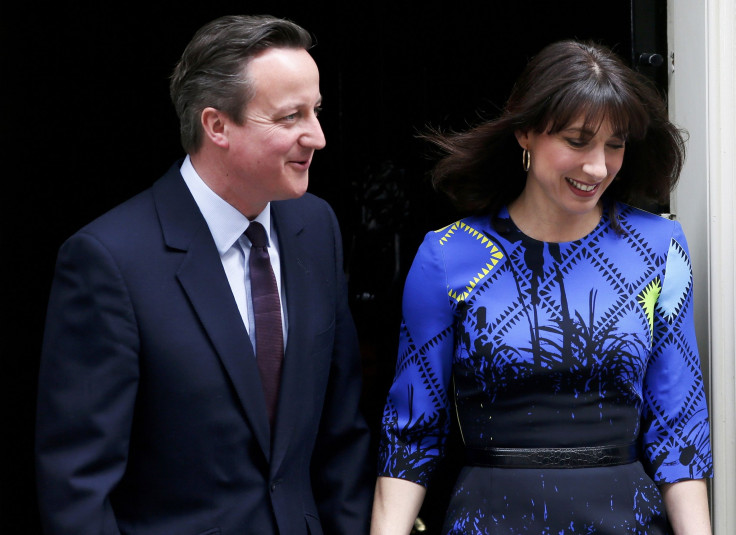UK Elections 2015: David Cameron Heads Back To Downing Street After Tories Win Majority

Defying pre-poll predictions forecasting a tight race between the Conservative and the Labour parties, the Tories swept to victory in the elections to the fifty-sixth parliament of the United Kingdom.
In results that saw the Labour Party and the Liberal Democrats both suffering major losses, the Conservative Party secured a majority, winning 325 seats as of 7 a.m. EDT. The results, which are reportedly much better than many within the Conservative Party expected, bring David Cameron back for another five-year term at Downing Street.
“The pundits got it wrong, the pollsters got it wrong, the commentators got it wrong,” Cameron reportedly said during a victory address at the Conservative Campaign Headquarters. “The real reason to be proud, the real reason to be excited, is we are getting the opportunity to serve our country again … all the things we've done in the past five years, laying that foundation. Now being able to offer real hope to people in our country -- we are on the brink of something so exciting.”
The Labour Party, meanwhile, won 229 seats, down from 258 in 2010. According to media reports, Ed Miliband, the leader of the party, is now expected to resign.
“This has clearly been a very disappointing and difficult night for the Labour Party,” Miliband reportedly said, after winning his Doncaster North seat. “We have not made the gains we wanted in England and Wales, and in Scotland we have seen a surge of nationalism overwhelm our party.”
I am grateful to the people who worked on our campaign and for the campaign they ran. The responsibility for the result is mine alone.
— Ed Miliband (@Ed_Miliband) May 8, 2015The party has been left with just one MP in Scotland, where its bigwigs like Jim Murphy, Douglas Alexander and Margaret Curran were swept away by what is now being termed the Scottish National Party (SNP) “tsunami.”
The SNP recorded a historic landslide victory in Scotland, winning 56 seats -- a 50 percent share of votes in the region. The party’s victory could fuel a fresh demand for Scottish independence, according to media reports. However, Nicola Sturgeon, leader of SNP, denied that the votes her party gathered were votes in favor of independence.
My thanks to everyone who voted @theSNP yesterday. You made your voice heard and we will make Scotland's voice heard at Westminster #GE15
— Nicola Sturgeon (@NicolaSturgeon) May 8, 2015“I have said throughout the campaign that this was not about independence, I do not take any of the votes in the election for the SNP as votes for independence,” Sturgeon reportedly said. “These were votes to make Scotland heard. This has been a vote for change in Scotland and we will carry that message to the heart of Westminster.”
The results also turned out to be disappointing for the Liberal Democrats, who won only eight seats, and the U.K. Independence Party, which got just one seat. Nigel Farage, leader of the UKIP, announced his resignation after failing to secure his South Thanet seat while Lib- Dem leader Nick Clegg stepped down after his party's "catastrophic" loss.
"This is a very dark hour for our party but we cannot and will not allow decent liberal values to be extinguished overnight," the former deputy prime minister reportedly said.
The surprise success of the Tories could have major ramifications for the country's economy as well as its future in the European Union (EU). In February, the Institute for Fiscal Studies (IFS) -- a London-based research institute -- had forecast annual spending cuts of over 50 billion pounds over the next five years if the Conservative Party won the elections.
"History suggests that general elections tend to be followed by tax rises. The first year after each of the last five elections has seen the announcement of net tax rises of more than £5 billion per year in today’s terms," IFS reportedly said.
Another major concern after the Conservatives' victory is the prospect that the U.K. would go on to vote for an exit from the EU in a referendum promised by Cameron before the end of 2017.
Following the news of the Tories' win, the FTSE 100 was up more than 2 percent while the FTSE 250 was up nearly 3 percent. The pound sterling hit its highest level in three months, trading at 1.5464 against the dollar as of 11 a.m. GMT (7 a.m. EDT).
© Copyright IBTimes 2024. All rights reserved.






















